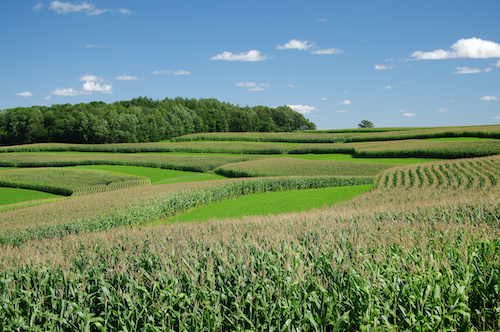Madison, WI—Clean Wisconsin praised the draft rules to reduce nitrate pollution in drinking water and the accompanying economic analysis released by the Department of Natural Resources (DNR) on Monday.
Revisions to NR 151, the state code governing fertilizer and manure use on agricultural lands, would create new guidelines for where, when, and how farms can apply nitrogen fertilizer and manure to fields and crops in areas of the state at risk for private and public well contamination.
“While it’s important to understand the costs associated with implementing the protections in this rule, it’s equally if not more important to remember that there’s a steep cost of taking no action, and that cost is borne by the tens of thousands of people around the state who go without access to clean drinking water because of nitrate contamination or suffer health consequences when they unknowingly consume it,” said Scott Laeser, water program director for Clean Wisconsin.
“The draft economic analysis released today clearly demonstrates that reducing nitrate pollution will improve peoples’ health and welfare and save them millions of dollars in medical costs, reduce the need for costly water filtration or well replacement, and lift the nitrate pollution burden currently borne by too many Wisconsin families.”
About 90 percent of nitrate contamination in groundwater in Wisconsin is linked to agricultural practices. Major health consequences, such as Blue Baby Syndrome in infants, birth defects for fetuses, and certain types of cancers in adults are linked with nitrate exposure. A peer reviewed study published by Clean Wisconsin in 2020 found that nitrate contamination in drinking water could cost state residents up to $80 million annually in medical expenses.
“Clean drinking water for the people of Wisconsin is priceless,” stated Laeser, “and it is important that the Legislature recognize, value, and consider the benefits this rule will provide as we figure out how best to manage the costs to clean up this widespread drinking water pollution problem.
“These protections Gov. Evers asked the DNR to develop are the only major statewide effort to address nitrate pollution currently underway, which makes it all the more important they move forward.
“We look forward to working with the DNR, the governor, the legislature, and our environmental and agricultural partners to put these important protections in place and to help farmers implement them. This rule can chart a course to clean drinking water for the tens of thousands of Wisconsin families that don’t have it.”

